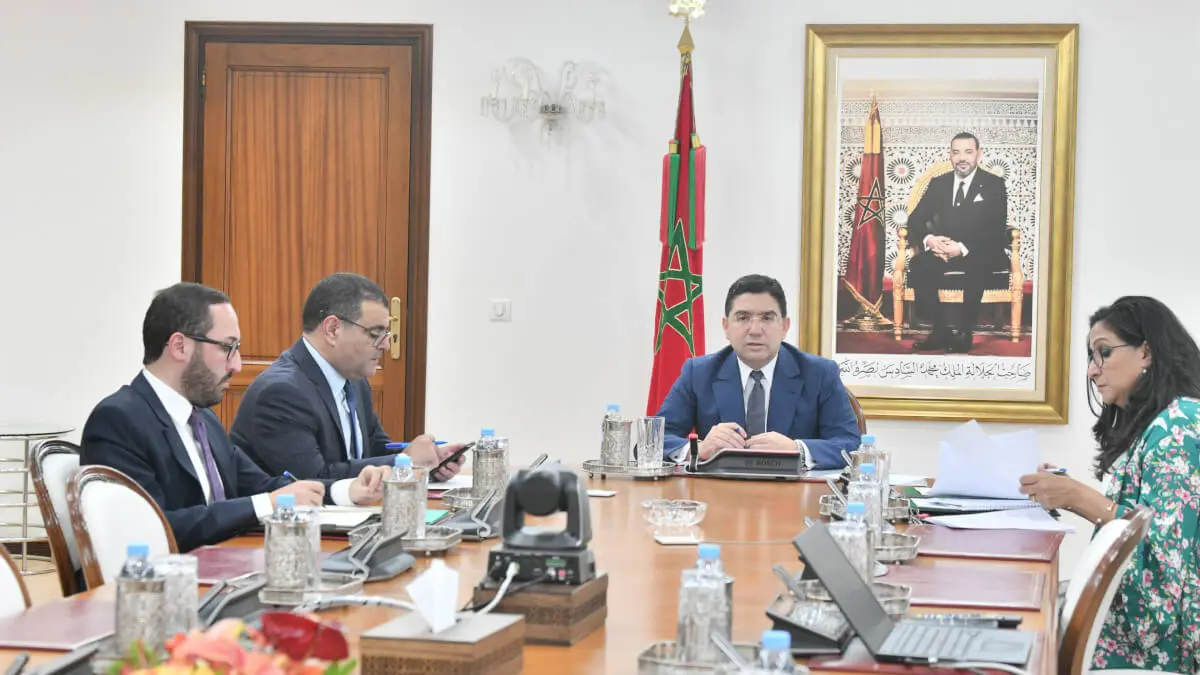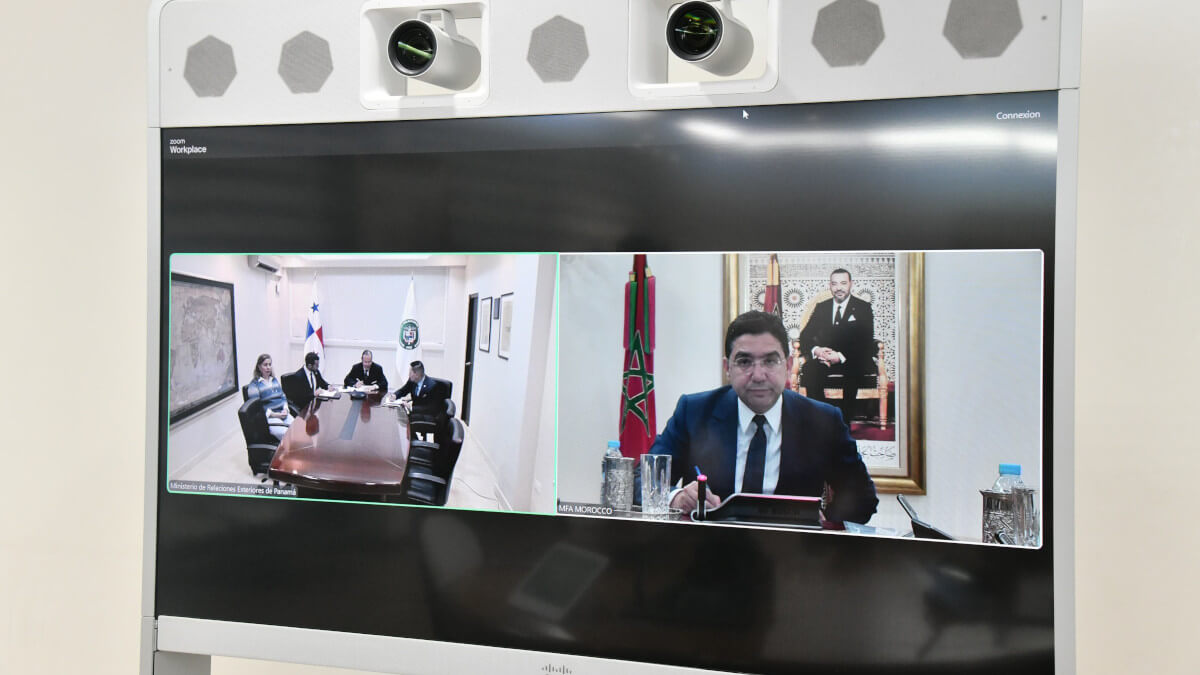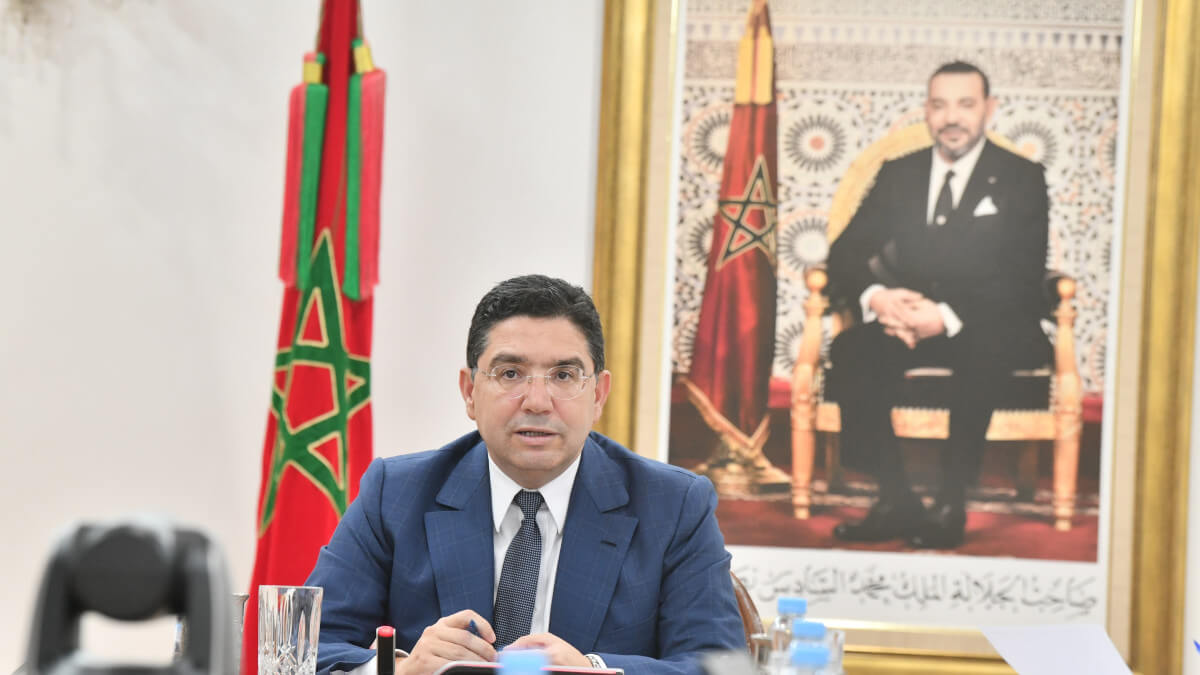Panama reiterates its decision to suspend recognition of SADR

The Moroccan Minister of Foreign Affairs, Nasser Bourita, has held a video conference with his Panamanian counterpart, Javier Eduardo Martínez-Acha Vásquez, following the message sent by the Moroccan King, Mohammed VI, to the President of the Republic of Panama, José Raúl Mulino.
In this message, the monarch expressed his gratitude for Panama's decision to suspend recognition of the so-called Sahrawi Arab Democratic Republic (SADR), a gesture that, according to Bourita, marks the beginning of a new stage in bilateral relations.
During the conversation, Vásquez expressed, on behalf of the Panamanian government and people, his high esteem for the Royal Message addressed to the President of the Republic.
Panama's suspension of recognition of the separatist entity comes just weeks before the start of its term as a non-permanent member of the Security Council, which will begin on 1 January 2025.
In this sense, Panama's position will actively contribute to the search for a definitive solution to the regional conflict over Western Sahara, in accordance with the parameters set out in the latest UN Security Council resolution.

Panama's decision also reinforces the growing international support for a definitive solution to the regional conflict over Western Sahara.
Within the framework of this renewed bilateral dynamic, many promising prospects are opening up for both countries to give new impetus to their cooperation in strategic sectors. This cooperation will be consolidated through a solid partnership based on friendship and mutual trust.
Dans une Déclaration conjointe, ils ont exprimés la volonté de renforcer le partenariat économique et commercial et ont convenu de la signature d’une Feuille de Route de Coopération devant structurer, de manière opérationnelle et concrète, les axes et secteurs de coopération
— Maroc Diplomatie 🇲🇦 (@MarocDiplomatie) November 27, 2024
Morocco and Panama deepen their bilateral cooperation
Indeed, during the video call, Bourita and Vasquez reiterated the full commitment of Morocco and Panama to boost bilateral cooperation.
Both sides agreed on the need to strengthen the legal framework governing relations between Morocco and Panama and to activate the mechanism of political consultations between the two countries' Ministries of Foreign Affairs.
In a Joint Declaration, they also expressed the will to increase bilateral trade and develop a dynamic economic partnership based on trade and investment, as reported by MAP.
To this end, both ministers agreed to promote the exchange of experiences in various areas of common interest and to consolidate bilateral cooperation in sectors such as green development, energy transition, diversification of the energy matrix, agriculture and food security, fisheries, water resource management, tourism, health, port infrastructure, technical cooperation, higher education, academic and vocational training, cultural cooperation and migration, among others.

The two sides also highlighted the potential for bilateral cooperation offered by the positioning of Morocco and Panama as major air, sea and land logistics hubs for Africa and Latin America and the Caribbean, respectively.
While highlighting the innovative project of the National Initiative for Human Development (INDH), the fruit of the proximity policy promoted by King Mohammed VI, the Panamanian side expressed its interest in following Morocco's example in improving the living conditions of citizens and promoting social development.
The two ministers also exchanged views on regional and international terrorist threats and discussed ways of strengthening bilateral cooperation in the fight against terrorism, transnational organised crime and illegal immigration.
Finally, they agreed to sign a Cooperation Roadmap that will structure, in an operational and concrete manner, the axes and activities of cooperation.










